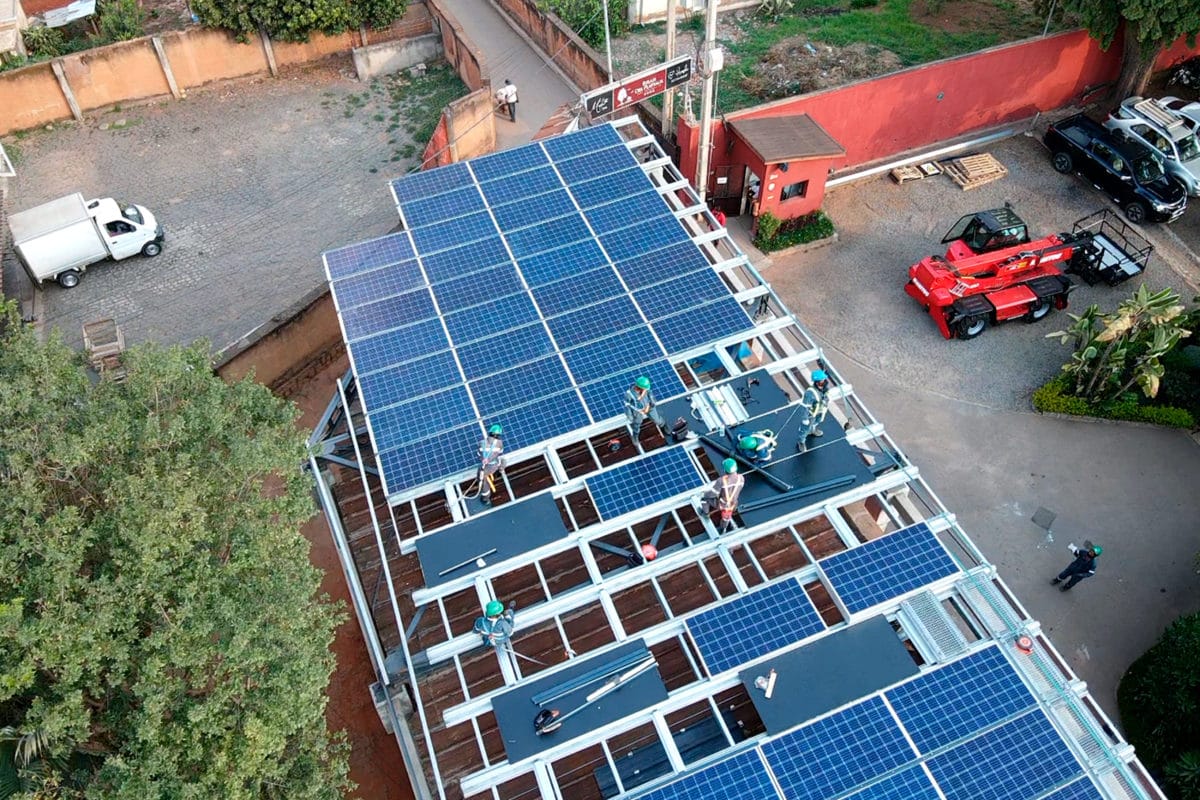With the representatives of African governments present at last month's COP26 climate change summit in Glasgow having committed to expanding clean power generation, more heads of state need to accompany their words with deeds, one delegate told an online event dedicated to Central Africa's solar rooftop market.
“We need to see policies that match the talk and, up to now, we don't have many policies that match the talk across the continent, apart from very few countries, such as Senegal,” KPMG‘s Martins Arogie told the Solar Roofs Central Africa event.
The event focused on the rooftop segment of the solar industry in Angola, Burundi, Cameroon, the Central African Republic, Chad, the Democratic Republic of the Congo, the Republic of the Congo, Equatorial Guinea, Gabon, Rwanda, São Tomé and Príncipe, Sudan, and Zambia.
Urban solar
Buildings are key to our daily lives and significantly impact our health and wellbeing. The majority also have substantial carbon footprints and employ heavy use of fossil fuels across their lifetimes, from construction to their use and demolition. pv magazine’s UP Initiative is focusing on the role solar and energy storage can play in greening the world’s urban spaces. Read our urban solar coverage here.
Arogie, a partner at the global accountancy firm, said governments need to provide up front incentives for customers to choose solar over diesel generators, as discussing the advantages of PV panels over the entire life of a solar rooftop was not enough of a pull. “Today, the average cost of investing in solar panels and batteries is a lot higher than the average cost of the initial cost of fossil fuel generators,” he said, adding: “The solar panels and batteries will cost less over the lifetime of both assets but customers don't look at lifetime duration. They look at initial expenditure.”
Metkel Z Abraham, chief operating officer of Ugandan solar roof and pump provider Aptech Africa, said: “The most important policy that we see now is tax exemption on solar products which has a big impact since the initial cost of solar products is expensive. Unfortunately, most countries in the central region [of Africa] don't have this policy.”
Popular content
Abraham also called for installation standards and a requirement for capable, qualified solar installers.
Policymakers should join forces with the private sector to find a way to persuade banks to offer more affordable finance for solar projects, according to Brayson Hillary Kisamo, East Africa sales manager for Chinese PV manufacturer JA Solar. At the moment, he said, banks charge as much as 15-25% interest on loans for solar projects as they attempt to hedge against often wildly fluctuating local currencies.
Alda Manuel, renewable energy project manager for Angolan infrastructure and telecoms company Anglobal, said Africa needs its own supply chain of materials used in solar manufacturing, as well as wider adoption of feed-in tariffs for the owners of solar rooftops, and better availability of electric grid connections.
Manuel also pointed to the importance of preparing policy for the recycling of the waste materials that will follow the first wave of Central African solar installations, and said the government of hydro-dependent Angola is aiming to draw 70% of its electricity from renewables next year and is deploying carbon taxes.
This content is protected by copyright and may not be reused. If you want to cooperate with us and would like to reuse some of our content, please contact: editors@pv-magazine.com.


1 comment
By submitting this form you agree to pv magazine using your data for the purposes of publishing your comment.
Your personal data will only be disclosed or otherwise transmitted to third parties for the purposes of spam filtering or if this is necessary for technical maintenance of the website. Any other transfer to third parties will not take place unless this is justified on the basis of applicable data protection regulations or if pv magazine is legally obliged to do so.
You may revoke this consent at any time with effect for the future, in which case your personal data will be deleted immediately. Otherwise, your data will be deleted if pv magazine has processed your request or the purpose of data storage is fulfilled.
Further information on data privacy can be found in our Data Protection Policy.